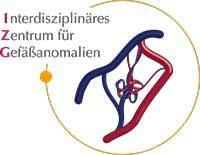Laryngeal Cancer — Embolization or Chemoembolization: treatment in the Best Hospitals in the World
Treatment prices are regulated by national law of the corresponding countries, but can also include additional hospital coefficients. In order to receive the individual cost calculation, please send us the request and medical records.

Department of Interventional Radiology
The Department of Interventional Radiology offers the full range of imaging examinations, as well as innovative image-guided minimally invasive techniques for the treatment of tumors, vascular diseases and internal pathologies (for example, CT, MRI, PET-CT, SPECT). The department's doctors have deep knowledge and colossal experience in the field of interventional radiological methods of treatment, which represent an excellent alternative to open surgical interventions. Despite the high level of technical equipment and the presence of advanced computerized systems, the focus is always on the person with his individual needs. Compliance with current clinical protocols and high professionalism of the department's specialists contribute to the successful clinical practice, as well as the reputability of the department among the best medical facilities of this kind in Germany.




Department of Interventional Radiology and Neuroradiology
The Department of Interventional Radiology and Neuroradiology offers a full range of advanced imaging diagnostics and minimally invasive treatments on both an inpatient and outpatient basis. The department has state-of-the-art medical equipment for imaging tests such as X-ray, computed tomography, magnetic resonance imaging, digital subtraction angiography, and mammography. The medical facility also performs many highly effective interventional therapeutic procedures under image guidance, which in many cases allow patients to avoid traumatic open surgery. For example, the department successfully performs local fibrinolysis, thrombectomy, percutaneous transluminal angioplasty, hemostasis, transarterial chemoembolization, uterine artery embolization, and other procedures. The department's neuroradiologists specialize in brain and spinal cord imaging and the treatment of central nervous system disorders. Interventional neuroradiology focuses on the treatment of carotid artery stenosis, brain aneurysms, arteriovenous malformations, dural fistulas, subdural hematomas, brain tumors, skull base and spinal tumors, and chronic back pain. The department's medical team has extensive clinical experience in their areas of expertise. The specialists are guided by the recommendations of the German Society for Interventional Radiology and Minimally Invasive Therapy (DeGIR) and the German Society for Neuroradiology (DGNR), which helps to achieve the best results.






Department of Adult and Pediatric Diagnostic, Interventional Radiology, Neuroradiology
The Department of Adult and Pediatric Diagnostic, Interventional Radiology, Neuroradiology is one of the best institutions of its kind in Germany and offers patients the full range of radiological studies and imaging-guided minimally invasive therapy. The department’s scope of tasks also includes imaging diagnostics in children of all age groups, detection and invasive treatment of cerebral vascular pathology (neuroradiology). Patient care is provided both on an inpatient and outpatient basis.






Laryngeal cancer is one of the most common neck tumors. About 250,000 new cases are diagnosed in the world annually and about 100,000 people die from this disease. If a tumor develops in the area of the vocal folds, then it is diagnosed at the early stage, since the patient's voice changes. However, neoplasms of other localizations do not give symptoms for a long time, therefore they are often detected at 3-4 stages. These patients require combination treatment. One of its elements may be chemoembolization – closing the lumen of arteries supplying the tumor in combination with regional chemotherapy.
Content
- What are embolization and chemoembolization
- In what cases can embolization be used for laryngeal cancer
- How is embolization performed
- Embolization before surgery
- Embolization without surgery
- Why is it worth undergoing embolization abroad
- Treatment in Europe with Booking Health at an affordable price
What are embolization and chemoembolization
Embolization is an X-ray-guided surgical procedure to close the lumen of the arteries supplying the tumor. Cancer cells do not receive oxygen, so they die quickly. As a result, the tumor decreases in size, and in some patients it practically disappears – it cannot be determined using X-ray diagnostics.
Vascular embolization has become widespread in medicine since the end of the twentieth century. It is most often used in oncology for cancer or metastatic liver lesions. However, the procedure began to be used in the 21st century for dozens of other types of cancer, including malignant laryngeal tumors.
Embolization is not usually used in its classical form, but it is combined with regional chemotherapy. This technique is called chemoembolization. Doctors inject emboli, which contain cytostatics, into the vessels. They enter the arterial bed, accumulate in large quantities in tumors and destroy cancer cells. Chemotherapy drugs can be added to the lipiodol-based emulsions or placed in drug-eluting microspheres.
Embolization is a technically complex procedure, and therefore it cannot be performed everywhere. More and more hospitals in developed countries use this method for the treatment of cancer, because it has a huge number of advantages. These are as follows:
- Minimal invasion – the procedure is performed with access through the blood vessels. There is no need for large incisions in the neck. The doctor inserts a catheter into the femoral artery through a small incision in the leg.
- There is no need for rehabilitation – the patient stays in the hospital for only 3-4 days. If the incision for the surgical access is made in the groin, he spends only one day in bed.
- High efficiency – in case of laryngeal cancer, it is possible to achieve total destruction of the tumor in 75% of cases or reduction of the diameter of tumor foci by more than 30%.
- Safety – complications after the proper procedure are very rare.
- Compatibility with any other cancer treatment methods – embolization for laryngeal cancer is most often complemented by surgery or radiation therapy.
The treatment is well tolerated by patients. Embolization has fewer side effects than most other cancer treatment methods. An increase in body temperature and pain syndrome are possible after the procedure, but it is stopped by drugs and passes in 2-3 days.
In what cases can embolization be used for laryngeal cancer
Embolization is only used for patients with advanced laryngeal cancer. It is not among the standard treatment methods, and can be used only in a small number of hospitals.
The priority treatment for cancer at any stage is surgery. The patient undergoes an operation to completely or partially remove the larynx. Whenever possible, the doctors try to perform partial removal of the organ in order to preserve its functions. However, a total laryngectomy has to be performed in a large tumor size. When the larynx is completely removed, the patient breathes through a tube in the neck and speaks through the esophagus.
If surgery cannot be performed, radiation therapy is used. In laryngeal cancer, radiation is possible according to a radical program. This means that the goal of radiation therapy is not to temporarily suppress the tumor, but to completely cure the disease. Although this method seems attractive to many patients since it does not require invasive intervention, radiation therapy is less likely to cure cancer than surgery.
In the case of surgery, most patients require additional treatment to prevent recurrence. They receive adjuvant (postoperative) radiation therapy and chemotherapy.
Embolization is usually used in cases when radical surgery is not possible due to the size or spread of the tumor. As a result of the procedure, the tumor is reduced, and the doctor can remove it. If the tumor remains unresectable, then embolization is one of the treatment methods, which allow the doctors to restrain the growth of tumor foci for a long time. It relieves symptoms and prevents cancer complications.
How is embolization performed
Laryngeal cancer embolization is a minimally invasive procedure. It is performed through the blood vessels.
The most common access is transfemoral. The doctor inserts a catheter into the femoral artery. Then, he catheterizes the external carotid artery. Its branches are closed with emboli containing chemotherapy drugs.
To assess the type of blood supply to the tumor, as well as to determine the arteries supplying adjacent organs, the doctor performs angiography. He injects a contrast agent into the vessels and then takes a series of X-rays. Doctors accurately examine the structure of the arterial bed in the tumor area in order to perform embolization of the vessels as close to the tumor as possible and to avoid getting the embolizate agent into non-target vessels. Such an approach provides a higher response rate to treatment with a lower risk of complications caused by impaired blood supply to the neck organs.
Microspheres or lipiodol-based emulsions are used as emboli.
Oily chemoembolization is one of the most commonly used methods of closing the lumen of blood vessels. Lipiodol is injected into the branches of the external carotid artery, in which cytostatics are dissolved. Adipose drops block small vessels. They stay in the tumor for a long time, gradually releasing chemotherapy drugs and suppressing cancer cells. This embolization is temporary, not permanent. After a while, the permeability of the vessels is restored. Oily embolization is often repeated multiple times. If surgical treatment or radical radiation therapy is not performed, then embolization is performed every few months. It is carried out as long as there is a positive result of cancer treatment in the absence of serious complications.
An innovative embolization technique using drug-eluting microspheres is often used in Europe. This procedure is more effective. The vessels are blocked with tiny balls containing chemotherapy drugs. Arteries are closed permanently. Within a few weeks, drugs are released from the microspheres and suppress tumor growth. Unlike oily chemoembolization, microspheres can not only reduce the size of the tumor, but also stop hemorrhage at the advanced stages of cancer.
Embolization before surgery
The best treatment results are obtained if the patient receives surgical treatment for laryngeal cancer. Many patients come to the doctor only at stage 3 of the disease, when the tumor is large and has metastasized to the lymph nodes. In such cases, doctors try to reduce the tumor before removing it. The standard approach involves radiation therapy and chemotherapy. Embolization is also possible.
The procedure provides the following results:
- Tumor size reduction.
- Doctor has a better chance to perform total removal of the tumor.
- Lower risks of tumor recurrence after surgical treatment.
- Person loses less blood, since blood flow through large arterial vessels stops.
- Due to the tumor size reduction, surgery becomes less traumatic.
- In some cases, it is possible to preserve the larynx – the doctor performs an organ-preserving operation instead of laryngectomy.
- Risk of intraoperative and postoperative complications decreases.
Embolization is performed for patients with unresectable tumors. In combination with other treatment methods, with a locally advanced process, it is possible to achieve the transition of the tumor to a resectable state in 80% of cases. Namely, patients who were previously not considered candidates for surgery can now receive radical treatment to try to cure laryngeal cancer.
Embolization without surgery
Vascular embolization of laryngeal tumors can be used for the advanced stage of the disease, when surgical treatment is impossible or impractical. The purposes of using the procedure are as follows:
- Tumor size reduction.
- Stabilization or slowdown of its growth.
- Cessation of hemorrhage.
- Relief of cancer symptoms.
- Increased sensitivity of cancer cells to radiation therapy.
- Increased life expectancy of the patient.
- Improved quality of life.
Embolization is usually combined with other treatment methods. Irradiation is carried out after it. Most patients receive systemic drug therapy. In addition to standard therapy with cytostatics, targeted and immunotherapy are used in Europe.
However, chemoembolization is very effective even as an independent treatment method. Approximately 65% of patients receive a partial response after this procedure. This means that the tumor and its metastases are reduced in size by more than a third. In 10% of cases, a complete response is achieved – the neoplasm is not detected at all with the help of X-ray diagnostics. Stabilization is achieved in 15% of cases – the tumor is reduced by less than 30% or stabilizes in size. Only in 5% of patients, embolization with regional chemotherapy is ineffective – new tumor foci develop or existing tumors increase by more than 20%.
Why is it worth undergoing embolization abroad
Patients often go abroad for cancer treatment. They receive medical care of a higher level in developed countries. The treatment in the best hospitals in the world is not only effective, but also safe. Developed countries use innovative methods of cancer treatment, which countries with a low level of medicine will begin to apply only in a few years.
There are several reasons for you to undergo treatment of laryngeal cancer in Europe:
- Vast experience in performing embolization of the external carotid artery and other vessels for head and neck tumors.
- High-precision diagnostics allows the doctors to assess the blood supply to the tumor, larynx, and other organs of the neck, in order to perfectly plan the procedure.
- The use of new embolization methods, including drug-eluting microspheres.
- Superselective vascular embolization can be performed: doctors block the arteries as close to the tumor as possible to minimize damage to healthy tissue.
- With the help of chemoembolization, in most patients it is possible to achieve the transition of the tumor to a resectable state, if at the time of diagnosis, a radical (potentially curative) surgery is impossible.
- Doctors temporarily close the non-target vessels during the procedure to prevent penetration of embolization agents into them. This manipulation reduces the risk of complications associated with impaired blood supply to other organs of the neck.
- Embolization can be successfully combined with other cancer treatment methods: surgery, radiation therapy, systemic chemotherapy, targeted and immunotherapy.
Treatment in Europe with Booking Health at an affordable price
To undergo treatment in one of the European hospitals, please use the services of Booking Health. On our website, you can see the cost of treatment in different European hospitals, compare prices and book a medical care program at an affordable price. Arterial embolization in a European hospital will be easier and faster for you, and the cost of treatment will be lower.
Please leave your request on our website. Our employee will contact you and provide consultation about the treatment in Europe. The medical tourism company Booking Health will take care of the organization of your trip. We will provide the following benefits for you:
- We will select a hospital for treatment in Europe, whose doctors specialize in the treatment of laryngeal cancer.
- We will help you overcome the language barrier, establish communication with your attending physician.
- We will reduce the waiting period for the medical care program and book a doctor's appointment on the most suitable dates.
- We will reduce the price. The cost of treatment in European hospitals will be decreased due to the lack of coefficients for foreign patients.
- We will take care of all organizational issues: documents for entering the country, transfer from the airport, hotel, interpreting services, etc.
- We will prepare a medical care program and translate medical records. You do not have to undergo previously performed diagnostic procedures.
- We will provide communication with the hospital after treatment in Europe.
- We will organize additional diagnostic examinations and treatment in a European hospital, if necessary.
- We will buy medicines abroad and forward them to your native country.
- We will help you keep in touch with the hospital and the attending physician after treatment in Europe.
You will be treated by the best doctors in the world. The Booking Health specialists will help you reduce the cost of treatment and take care of all organizational issues, and you will only have to focus on restoring your health.
Authors: Dr. Nadezhda Ivanisova, Dr. Sergey Pashchenko

